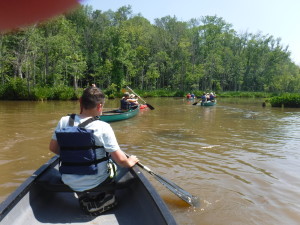In their article “Risking a Debate – Redefining Risk and Risk Management: A New Zealand Case Study”, The Journal of Experiential Education, Spring 2001, Vol. 24, No. 1, pp 50-57, authors Robyn Zink et al discussed the results of a study directed to the perceptions of risk of twelve different experienced New Zealand outdoor instructors.
As reported in the article:
- Nine of the twelve instructors framed risk management in terms of managing real dangers to minimize risk and to reduce the potential for loss;
- Eleven instructors identified group dynamics as an important aspect of risk management;
- Seven instructors believed the environment and weather conditions to be important risk management considerations;
- Six instructors identified potential consequences and the benefits of the activity as being important to their risk management decisions;
- Five instructors took into consideration personal well-being and personal skill-level during risk management evaluations;
- Five instructors mentioned risk management as being more than a set of rules, and something they did automatically;
- One instructor described risk management as something involving looking, seeing, and feeling the situation – a feeling as to what is going on;
- Five of the instructors indicated that, at times, they operated outside policies when they felt comfortable doing so and what they were doing was believed to be acceptable;
- Only two instructors stated that they took industry standards into account when making risk management decisions;
- Nine instructors stated that their views as to risk management changed with experience gained as an instructor
Clearly, there was no unanimity of thought among the twelve instructors as to what was deemed important, despite the fact that all are experienced in the outdoors.

The takeaway for adult leaders is that each unit leader may, as a result of their different experience levels, address their risk management role differently from other adult leaders in the unit. Their respective experience may determine if their exercise of risk management satisfactorily responds to the needs of the participants.
It is important for the unit to take such considerations into account during the planning and conduct of the anticipated activity to ensure that all relevant risk management issues are not only addressed, but addressed satisfactorily, irrespective of which adult leaders are involved!
This can only serve to benefit the well-being of the participants, Scouts and adults alike!
